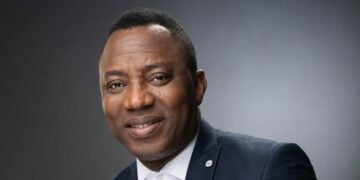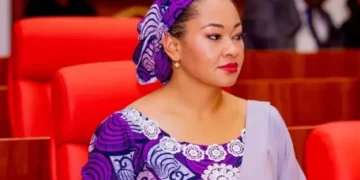Religious and cultural harmony have been identified as essential ingredients for national integration, peace, unity and development as the country tries to reinvent itself along the path of socio-economic recovery.
This was the thrust of a one-day interfaith dialogue conference by leaders and stakeholders of different faith-based organisations held at the 1,000-capacity TETFund auditorium of the University of Uyo (UNIUYO), Akwa Ibom State.
The participants drawn from the Christian, Muslim, Jewish, Baha’i and traditional religious communities in the state resolved to forge a common understanding on fostering peace, unity and development of the country irrespective of religious backgrounds.
Addressing the conferees, the chairman of Ini local government area of the state, who doubles as co-Chairman of the forum, Hon. Inibehe Umah, underscored the importance of religious tolerance as the basis for peace and development of the state and the country.
He noted that governor Umo Eno, as an apostle of peace, has so far engendered peaceful co-existence and religious integration amongst different religions, including visitors and other nationals doing different businesses in the state.
As a government, the governor has spread his magnanimity in generous appointments to the Hausa – Fulani, Igbo and Islamic communities in the state.
“Religious tolerance is so deep – rooted in Akwa Ibom; we tolerate ourselves and other people’s biases, that’s why the State is known for peace, harmony and hospitable,” Umah, noted and hoped the prevailing peace would radiate across the country.
The keynote speaker, Prof. Andrew Boyd, senior programme officer, KAICIID, Lisbon, Portugal, stressed the need for religious tolerance and affinity towards addressing societal scourges to benefit humanity and society.
In the same vein, other speakers, including Dr. Effiong Udo, convener of the dialogue, explained that the inauguration of the Akwa Ibom State Inter-Religious Council (AKIREC) aimed at “promoting inter-faith education, addressing misconceptions, providing early warning mechanisms and mediating emerging tensions or conflict together.”
“The Council will serve as a collective moral voice that upholds justice and human dignity,” he stressed.
KAICIID Fellows, who authored a guidebook, “Handbook of Studies and Development in Dialogue”, including Dr. Fatima Abubakar, Dr. Sixtus Onuh, and Dr. Wayua Kiilu from Kenya, expressed optimism that the Council would live up to expectations in the assignment.
The vice chancellor, Prof. Nyaudoh Ndaeyo, who was represented by the director, Centre for Deep Dialogue and Critical Thinking, Prof. Donatus Ukong, commended the initiative and enjoined participants to ensure effective delivery of the term of reference for the greater good of the society and humanity.
The chairman of the 10-member Council, Rev. Isang Eyoumoh, pledged total commitment to the project and called for support.




